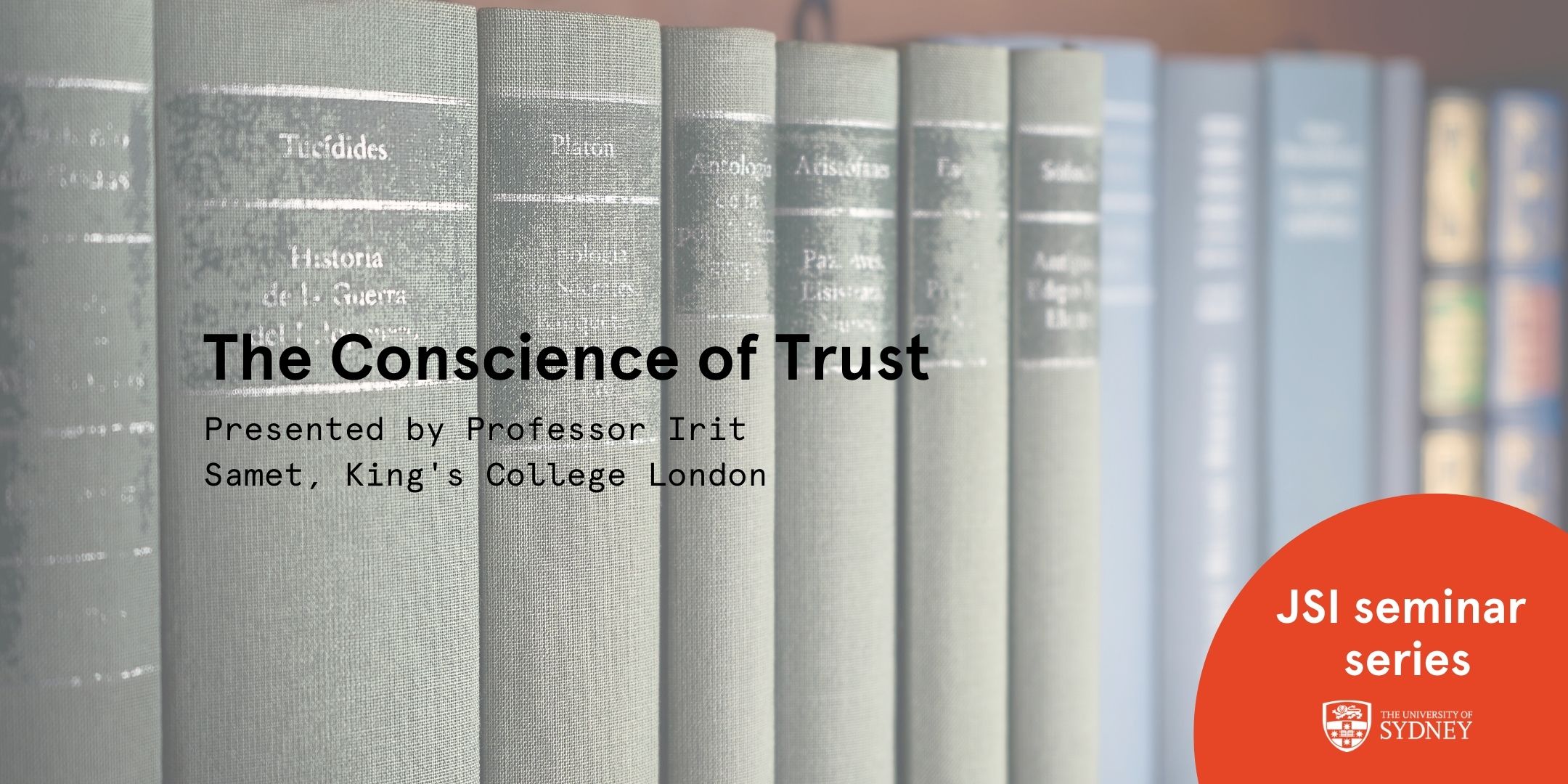JSI Seminar: The Conscience of Trust
Speaker: Professor Irit Samet, King’s College London
At the heart of the modern trust lies a glaring paradox: how has a legal institution that is repeatedly referred to by the courts as rooted in a duty of conscience become infamous for helping individuals to achieve goals that are patently unconscionable?
With every brazen leak of documents from offshore jurisdictions and the ensuing investigation into the financial affairs of the super affluent, it becomes clear that the trust is now a widely used vehicle for evading duties owed by property owners to creditors, dependants and the community. A dangerous trend of importing practices and trust structures from offshore jurisdictions to established onshore trust regimes threatens to further accelerate the corrosion in the reputation of the trust. Any comprehensive solution for the acute legitimacy problem faced by the trust must be multi-systemic.
In this paper, I focus on one aspect of it: the normative basis for the trust obligation. Looking at the conceptual edifice that underlies the trustee’s obligations, the paper argues that what worked for the problems that afflicted traditional trust relationship may not be suitable when facing the challenges of modern trusts. However, the way in which the concept of ‘conscience’ functions in this area of the law can be useful for reformers who wish to protect (what is left of) the good name of trusts. In particular, it can help us build the necessary moral authority for recent judicial interventions that aim to undo the damage of reckless offshore trust forms. I look into the way the courts of equity lift the concept of conscience from moral discourse and what this means for the moral standing of beneficiaries to make claims on the basis of trusts that are designed to create ‘orphan property’.
About the speaker:
Irit Samet is a Professor in the Dickson Poon School of Law, which she joined in 2008. She was previously a Lecturer in Law at Mansfield College, Oxford (2006-2007), and a lecturer at the University of Essex (2008). She read law and philosophy in Israel and completed her doctorate at Oxford. Her main research interests lie in the Law of Equity, Property Law, and the theory of private law. She published papers on these subjects in leading journals (like OJLS, MLR), and her book on the theory of Equity Law was published by OUP in 2018. She is a course convener for the undergraduate module of Equity and Trusts, and teaches philosophy of property law as an option B part of the Jurisprudence course, and research seminars in property law.
Thursday 18 August 2022, 6-7.30pm AEST
This event is being held an online and in-person at Sydney Law School. Please indicate your viewing preference when registering.
CPD Points:Â 1.5
This event is hosted by the Julius Stone Institute of Jurisprudence at The University of Sydney Law School.Â

